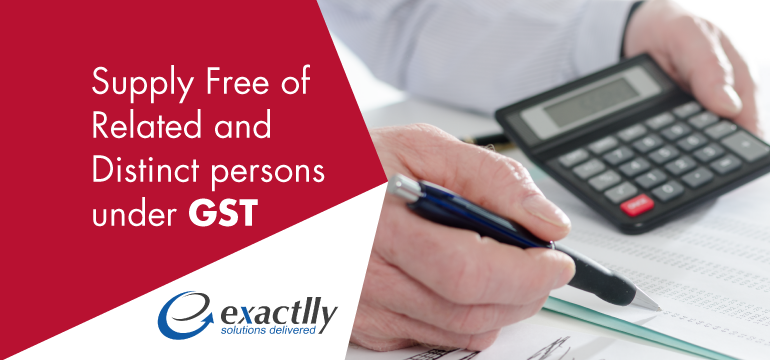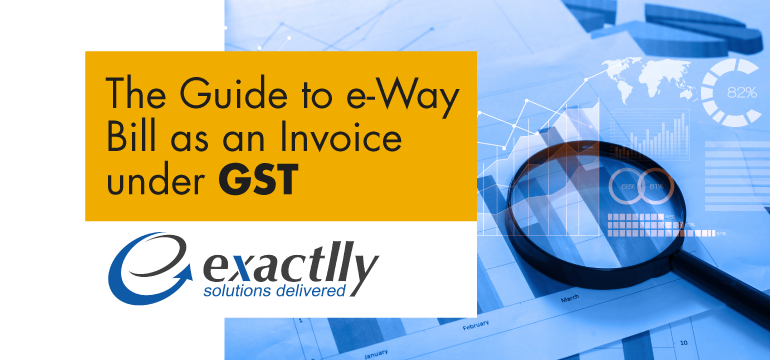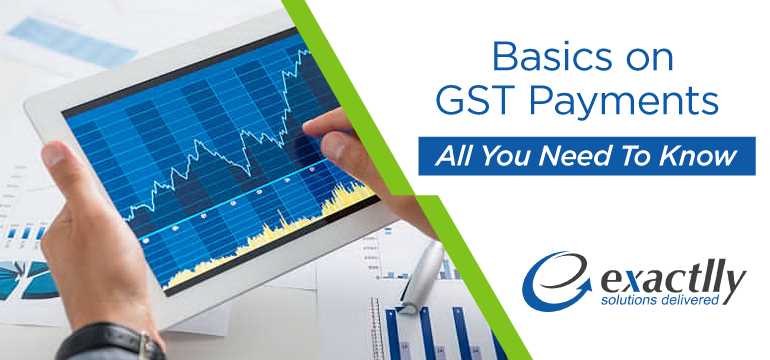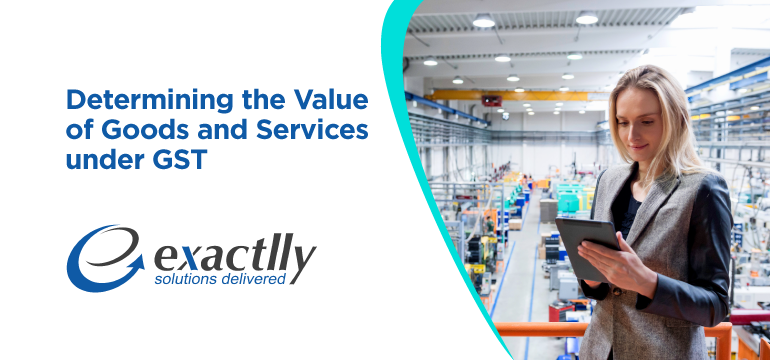Supply Free of Related and Distinct persons under GST

In this article, we have provided a snapshot of the differences between related and distinct persons under the GST regime with respect to supplies without consideration.
Who is a Related Person?
The Customs Valuation Rules defines a related person and under the GST as well, the definition is somewhat similar. A supply is considered to be taking place between related persons if the following conditions are satisfied –
- The supplier and recipient are officers/directors or affiliates of one another’s business. For example, Mr Bob is a director in JB Furniture Limited and an officer in Lara Fashion. Mr Max is an officer in JB Furniture Limited and a director in Lara Fashion, thus in case of a supply taking place between these two parties, the transaction will be considered to be that of a supply between related persons.
- The supplier and the recipient are partners either in the same or in an associated business. For example, Mr Bob and Mr Max are partners in JB Furniture Limited and thus any supply transaction taking place between them will be treated as a supply between related persons.
- When the supply is taking place between an employer and an employee. For example, if Mr Bob is an employee of JB Furniture Limited then any transaction with regard to a supply taking place between Mr Bob and JB Furniture Limited shall be regarded as a supply between related persons.
- When the supplier or the recipient owns, controls or holds (either directly or indirectly) an amount equal to or higher than twenty-five per cent of the outstanding voting stock or shares. For example, if the supplier owns 30% of the equity in the recipient’s business.
- When either the supplier or the recipient directly or indirectly controls the other. For example, direct control takes place when JB Furniture Limited holds equity in Fixtures & Fittings Limited. Therefore, the supply that takes place between the two companies is related as there is direct control of the business. In the case of indirect control, let us take the example of JB Furniture Limited and Fixtures & Fittings where JB Furniture Limited holds equity in Fixtures & Fittings. Further, JB Furniture Limited holds equity in Crockery United. Therefore, in the case of a supply taking place between Fixtures & Fittings and Crockery United, the transaction will be regarded as a related supply based on indirect control.
- When the supplier and recipient are directly or indirectly controlled by a third person altogether. For example, if JB Furniture Limited holds equity in both Fixtures & Fittings as well as in Crockery United, then any transaction taking place between Fixtures & Fittings and Crockery United will be regarded as a related supply transaction.
- The supplier and the recipient together directly or indirectly control a third person. For example, JB Furniture Limited holds 70% equity in Fixtures & Fittings and 40% equity in Crockery United. Fixtures & Fittings holds 60% equity in Crockery United. Therefore, together, JB Furniture Limited has control over Crockery United and any transaction of supply between them will be regarded as a supply between related persons.
- When the supplier and the recipient are members of the same family, then any transaction taking place between them shall be regarded as a supply between related persons.
Who is a Distinct Person?
Under the law, a distinct person is any taxable person who has either obtained or is required to obtain multiple registrations (more than one) within the same state or in different states. A distinct person may also be one whose establishment has either obtained or is required to obtain a registration and the person also has an establishment in another state. Every registration and establishment belonging to such a taxable person shall be treated as a distinct person and every supply transaction taking place between such distinct persons shall be regarded as taxable. So to know more about related and distinct persons under GST, read our full article. The following are taxable in respect of the same –
- Stock transfer taking place intrastate when an entity has more than one registration in a single state. For example, F&M Clothing is a garment manufacturing unit located in Maharashtra and owns a factory in Maharashtra. F&M Clothing has obtained separate registrations for the manufacturing unit and the factory and thus these two units or establishments will be treated as distinct persons. Any transaction taking place between them will be regarded as a taxable transaction even when no consideration amount is present.
- Stock transfer taking place interstate between two entities that are located in two different states is taxable. For example, F&M Clothing has a manufacturing unit located in Maharashtra and a factory in Madhya Pradesh. Therefore, these two units will be treated as distinct persons and any supply transaction taking place between the two units will be treated as taxable even when no consideration amount is present.
Wants to know more about exactllyERP? Feel free to Contact Us and get a Free Demo.







